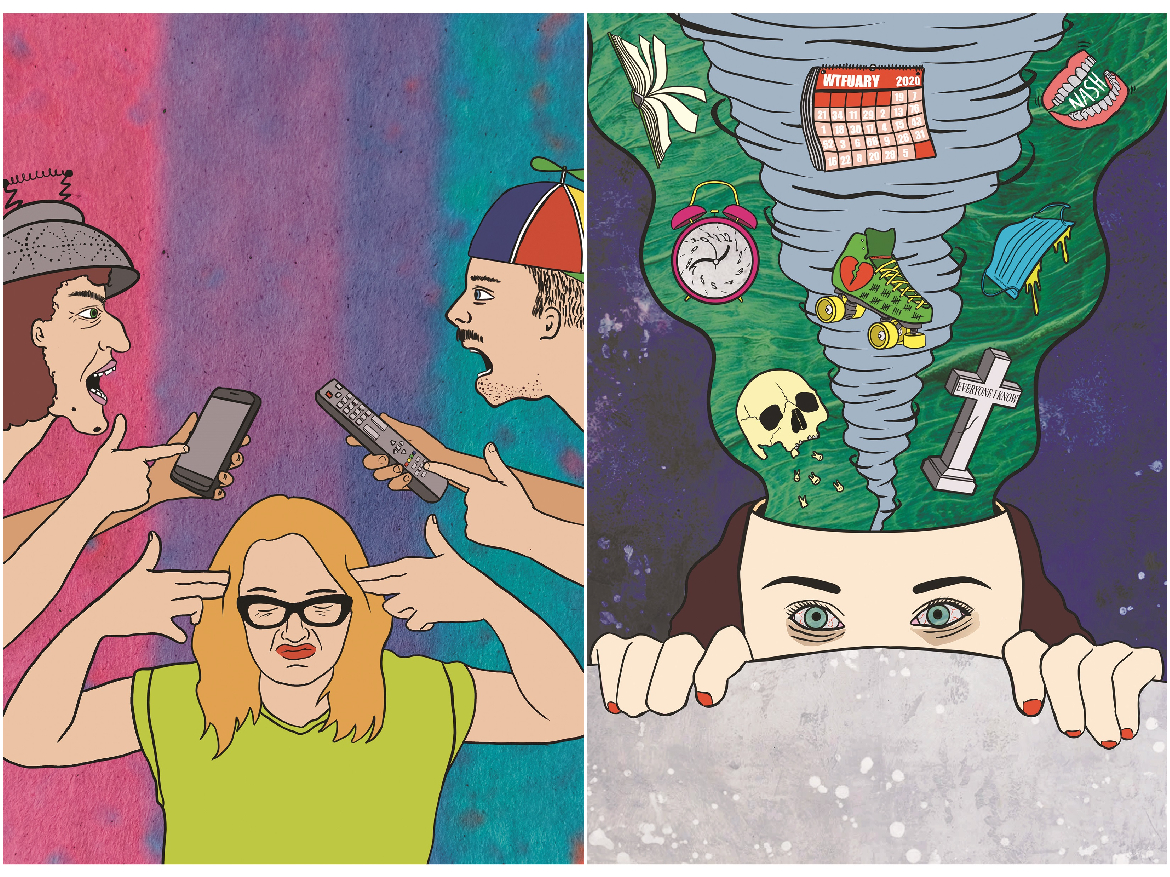Powerful new book reveals experiences of working class people during Covid-19 lockdown
1 June 2022
/0x33:950x679/prod01/channel_3/media/middlesex-university/news-section-images/2022/pizap.jpg)
Lockdown Diaries of the Working Class features the lives of nearly 50 people during the early stages of the pandemic
An inspirational new book documenting the lives of working class people during the first Covid-19 lockdown has been supported by Middlesex University.
Lockdown Diaries of the Working Class, produced by the Working Class Collective, features the experiences of 47 people between March and May 2020 as the virus first spread around the globe.
The moving book is the brainchild of Dr Lisa McKenzie, a former MDX academic, a sociologist and researcher at Bedfordshire and Leicester universities.
In the foreword, she wrote:
“What I did know was that (after lockdown) we had to hear the voices of working class people: the people who were still at work in supermarkets and food delivery, service industries, transport, social care and healthcare; working class mothers struggling with home schooling; disabled people terrified at the lack of support and information; the countless people who were about to lose their jobs. These are the people who, even when times are good, are forgotten, ignored and misrepresented, so I knew that in a pandemic, their stories would be lost.” Lisa McKenzie.
After putting out a call for pandemic diaries on social media, Lisa formed the Working Class Collective and launched a crowdfunding campaign to pay for publishing the book which raised just under £13,000 after donations from more than 800 people.
Dr Mike Dines, a Lecturer in Popular Music at MDX, who runs his own publishing company Itchy Monkey Press, helped Lisa to get the book published and distributed.
“As a working class academic, I’m well aware of my own privilege and part of this is giving a voice to those less fortunate,” said Mike.
Powerful accounts of lockdown experiences are represented by stunning graphic illustrations from six artists including MDX student Emma Quick, a second year BA Illustration student, who became involved in the project through MDX lecturer Tim Carson.

One woman, 28, who lived alone lockdown and works at a university, wrote in her diary:
“It’s now 30 days that I’ve been working from home, or, more accurately, seeing no one and doing next to nothing. One thing I’ve noticed is how much my brain has turned to mush. I can’t focus to read for more than five minutes. People ask me how my day was, and I don’t know.”
A woman graduate wrote: “My emotions have cycled through all sorts of phases during this lockdown but today, in week seven, was the first time I felt nothing. Just empty. This is unusual for me. I have depression and anxiety, and usually I feel everything very keenly. The emptiness was genuinely frightening. I felt frozen to my sofa, not knowing what I could or should do to help the situation.”
Diaries were produced by people aged from seven to 96 and from cities including London, Sheffield, Birmingham, Nottingham, Cardiff and Glasgow.
Mark, a healthcare hospital worker who lives with his disabled wife Adah, admitted in his diary “read that five more healthcare workers have died, not something you want to dwell on when you about to go to work in a hospital”.
Soraya, a 36-year-old mum of four who is also from Nottingham, wrote in her diary: “I’m not ashamed to say that during this lockdown I’ve let my children lead a very relaxed life. We’ve barely done any schoolwork. We’ve walked, baked, painted, laughed, watched films, stayed up late and eaten rubbish food.
“They play on phones, Xbox, PlayStation, Switch, and laugh with friends on the net. I’m no teacher, I’m their mum and I want them to be safe and most of all stress free and happy.”
Melanie, a social care worker who lives in Cornwall with her children, said in her diary: “If we have a lockdown for another three weeks, I have three weeks of being trapped in a flat with two children to entertain and work to do, and yet someone living in a large house with a garden is either being judgmental or using this as an opportunity to get attention. I think I just need a massive cry.”
Sally, a mum of two grown up children, wrote sadly: “Today was my neighbour Eddie’s funeral. No one attended apparently – it’s what he wanted and arranged himself, just the hearse drove slowly down the road and passed the shops.
“We all clapped him on his final journey. My neighbour Helga was so upset; they had been friends for years, bless ’em.”
Several diarists described how the lockdown had fostered a sense of community spirit and one Maggie, a mum-of-two from Glasgow, regularly checked on two neighbours during lockdown.
In her diary, she added: “My view of this street has completely changed. I used to feel like it was a stepping stone to a nice house in a nice street once my situation improved, but this pandemic has inspired a sense of community that I would be hesitant to give up.”
* Pictures show some of the book artwork by Emma Quick, BA Illustration.


/11x0:1030x693/prod01/channel_3/media/middlesex-university/news-section-images/Mirabela-London-Fashion-Week-for-web.jpg)
/8x0:1033x697/prod01/channel_3/media/middlesex-university/news-section-images/Moot-Court-1.jpg)
/8x0:1033x697/prod01/channel_3/media/middlesex-university/news-section-images/2025/Troubadour-6.jpg)